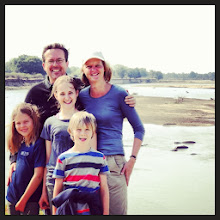Lieke has spent much time driving around with the children (before we moved into our house) and finding her way around Lusaka. Already before arriving there were contacts with Dance4Life Zambia and she had a number of meetings with the team, exploring how she could make a contribution to their work in Zambia. Hopefully other work opportunities will arise as well. In all, settling down in Lusaka has been energy-consuming – big change in our life. Finding a new rhythm, getting used to a new life style, leaving behind Hanoi and Vietnam (which was difficult for all of us), getting to know people in Zambia, and being patient around the efficiency and pace with which the agreed repairs to our house were completed. Not like Vietnam!
Our first meeting in the district is well attended and quite lively, another big contrast with Vietnam: everybody speaks out, issues are raised, and nobody afraid of criticizing whatsoever. Our visiting team is led by a lady from the Social Welfare Ministry, responsible for the programme. Still, people tend to address questions and concerns to us (UNICEF, UK and Irish embassies). When we visit the community volunteers (who help families register for the programme), teachers (who volunteer to do the payments), and families who receive the allowance we are impressed by the positive reactions and the fact that now close to 10,000 families in this district receive the money since 2010.
Although our visit is short, we get an impression of the difference this regular transfer can make in their lives: they can buy more food, shoes and clothes for their children, soap (one mother told us that she was now proud of sending her children to school clean), school uniforms, and some mothers (who receive the money) were able to start a small business such as selling dried fish or tomatoes. Mothers receive 60,000 Kwatcha monthly (about 12 US dollars), which is paid out to them on a bi-monthly basis by a group of local teachers who volunteer to act as paying officers. We really hope the programme will help improve the nutritional status of the children, something we hope to demonstrate through an evaluation end 2013. Indeed, many of the children we met were under-nourished, too short for their age, coughing – certainly confronting. Typically, these remote and poor areas are severely understaffed and teachers, nurses have to work in very difficult circumstances. We agreed that the Government should provide more incentives to work in these areas and recruit more staff (which it can certainly afford!). We observed that many families are not registered for the programme even though they have kids below five. The district officials blamed a limited budget. Again, this is something that the Government of Zambia can certainly afford. For those of you interested to read more about (the technical details of) this programme and its evaluation, the following website is useful: http://www.cpc.unc.edu/projects/transfer/countries/zambia





Geen opmerkingen:
Een reactie posten